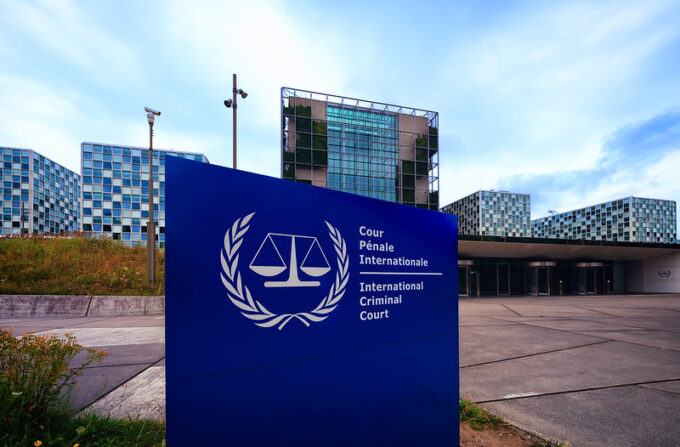A Strategically Timed ICC Arrest Warrant Request

Photograph Source: Tony Webster – CC BY 2.0
On November 27, Karim Khan, the Prosecutor of the International Criminal Court, announced that he is seeking an arrest warrant against Gen. Min Aung Hlaing, the head of Myanmar’s military junta, for his role in the commission of crimes against humanity against his country’s Rohingya minority.
This announcement comes at an awkward moment for American politicians of both parties who have been promising to impose sanctions on the ICC, its Prosecutor, its judges and their families as punishment for the ICC’s “outrageous” issuance of arrest warrants against Benjamin Netanyahu and Yoav Gallant for their roles in the continuing atrocities in the occupied State of Palestine that the International Court of Justice has ruled evidence a “plausible” case of genocide.
Senator Tom Cotton has threatened, in accordance with genuinely outrageous American law, to invade the Netherlands to rescue any Israeli taken into ICC custody, and Senator Lindsey Graham has said, “So to any ally, Canada, Britain, Germany, France, if you try to help the ICC, we’re gonna sanction you. We should crush your economy.”
However, the U.S. State Department has formally called the Myanmar regime’s atrocities against its Rohingya minority a genocide.
Logically, the U.S. government, which praised the ICC for issuing an arrest warrant against President Vladimir Putin, should now praise the ICC Prosecutor for seeking this arrest warrant against Gen. Min Aung Hlaing and urge the relevant panel of judges to issue it promptly.
However, this new arrest warrant request is seriously problematic for Israel’s loyal and obedient servants in Washington, risking, should they either praise it or proceed to sanction the ICC or both, a truly dazzling demonstration of hypocrisy on steroids and a vivid confirmation of Rule No. 1 of the American-dictated “rules-based order“: “It is not the nature of the act that matters but, rather, who is doing it to whom.”
While the timing of the ICC Prosecutor’s announcement is clearly awkward for American politicians, it may well have been strategic for the ICC.
It is worth noting that the ICC commenced its investigation of the Myanmar/Rohingya case in 2019, after its judges had ruled in 2018 that, although Myanmar is not an ICC member state, the court had jurisdiction over crimes that were “completed” on the territory of a member state, Bangladesh, where many Rohingya took refuge.
It is also worth noting that, with the sole exception of the Prosecutor’s announcement in May that he was seeking arrest warrants for Israeli and Palestinian leaders, the ICC has only made public announcements regarding arrest warrants when it has issued them.
In the context of the institutional and personal threats emanating from Washington after the Israeli arrest warrants were issued, it would have made sense for the ICC to seek some way to make it awkward for Washington to carry out these threats, and the Myanmar/Rohingya case may have served as a conveniently ripe, low-hanging fruit to pick for this purpose.
Indeed, Chris Gunness, former UNRWA spokesman and current Director of the Myanmar Accountability Project, has written that the Prosecutor’s announcement is “a masterstroke of timing that exposes the U.S.’s double standards”.
The degree to which the ICC takes these threats seriously was made clear when the President of the ICC, Tomiko Akane, addressed the annual Assembly of States Parties to the Rome Statute of the International Criminal Court on December 2. She warned that “International law and international justice are under threat. So is the future of humanity. The International Criminal Court will continue to carry out its lawful mandate, independently and impartially, without giving in to any outside interference” and detailed how “the court has been subjected to attacks seeking to undermine its legitimacy and ability to administer justice and realize international law and fundamental rights: coercive measures, threats, pressure, and acts of sabotage”.
This new arrest warrant request has so far been greeted with a stunned silence by the American political class, which, ideally, might now prudently reconsider whether it is really desirable to further embarrass and disgrace the United States by sanctioning the ICC and its personnel, as Russia has already done, for trying to apply international law, in accordance with its mandate from its 124 member states, independently and impartially and without fear or favor.
No comments:
Post a Comment